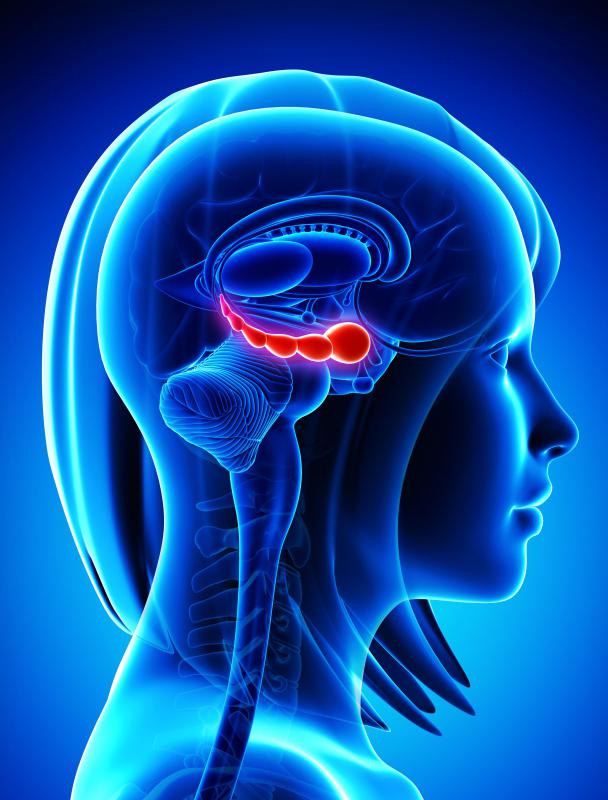At WiseGEEK, we're committed to delivering accurate, trustworthy information. Our expert-authored content is rigorously fact-checked and sourced from credible authorities. Discover how we uphold the highest standards in providing you with reliable knowledge.
What Are the Effects of PTSD on the Brain?
The effects of PTSD on the brain seem to suggest that there is a biological basis for the symptoms of this disorder. Scientists believe that the experience of extreme psychological trauma may cause physical changes in the brain. It may be possible, however, that inherent differences in brain structure and function make some people vulnerable to PTSD. The effects of PTSD on the brain occur mostly in the amygdala, a part of the brain that helps control emotions. The hippcampus, prefrontal lobe, and prefrontal cortex may suffer damage due to traumatic experiences, and some experts believe that the effects of PTSD on the brain include changes in the way the brain uses certain neurotransmitters, like dopamine, serotonin and noradrenaline.
One of the primary effects of PTSD on the brain may be found in the amygdala. Along with the prefrontal cortex, the amygdala is typically responsible for helping to control emotions. In some sufferers of PTSD, the amygdala actually grows larger, which could indicate an excess of emotional response in the brain. Changes in the way the brain uses neurotransmitters after experiencing trauma may cause decreased function of the prefrontal cortex, which normally also helps to control emotions, especially fearful ones. Experts believe that post-trauma changes in the function of the prefrontal cortex may occur due to increased levels of the neurotransmitter dopamine, which the brain typically excretes when high levels of alertness and caution are needed.

Many sufferers of PTSD experience a numbed emotional state following the onset of symptoms. Experts believe this may be due to increased levels of the neurotransmitters responsible for the relief of pain. The effects of PTSD on the brain can also include a decreased ability to use the neurotransmitter serotonin, which is generally responsible for feelings of well-being. This could explain why depressed feelings often accompany PTSD.

The hippocampus, which is usually responsible for processing and storing memories, may also suffer changes due to the effects of PTSD on the brain. Experts have found that many people with PTSD symptoms have a smaller than normal hippocampus. One theory states that the hippocampus could actually decrease in size during stressful events, due to damage done by the stress hormone cortisol. Another theory states that someone who develops PTSD may have possessed an unusually small hippocampus to begin with.

Those with PTSD often experience trouble collecting their thoughts and expressing themselves. The effects of PTSD on the brain may include damage to the prefrontal lobe, the area of the brain that typically regulates speech and self-expression. Elevated levels of noradrenaline in the brain may explain the occurrence of intense, physical startle reactions in PTSD sufferers, since this neurotransmitter typically induces "fight or flight" responses to stressful situations.
AS FEATURED ON:
AS FEATURED ON:

















Discuss this Article
Post your comments